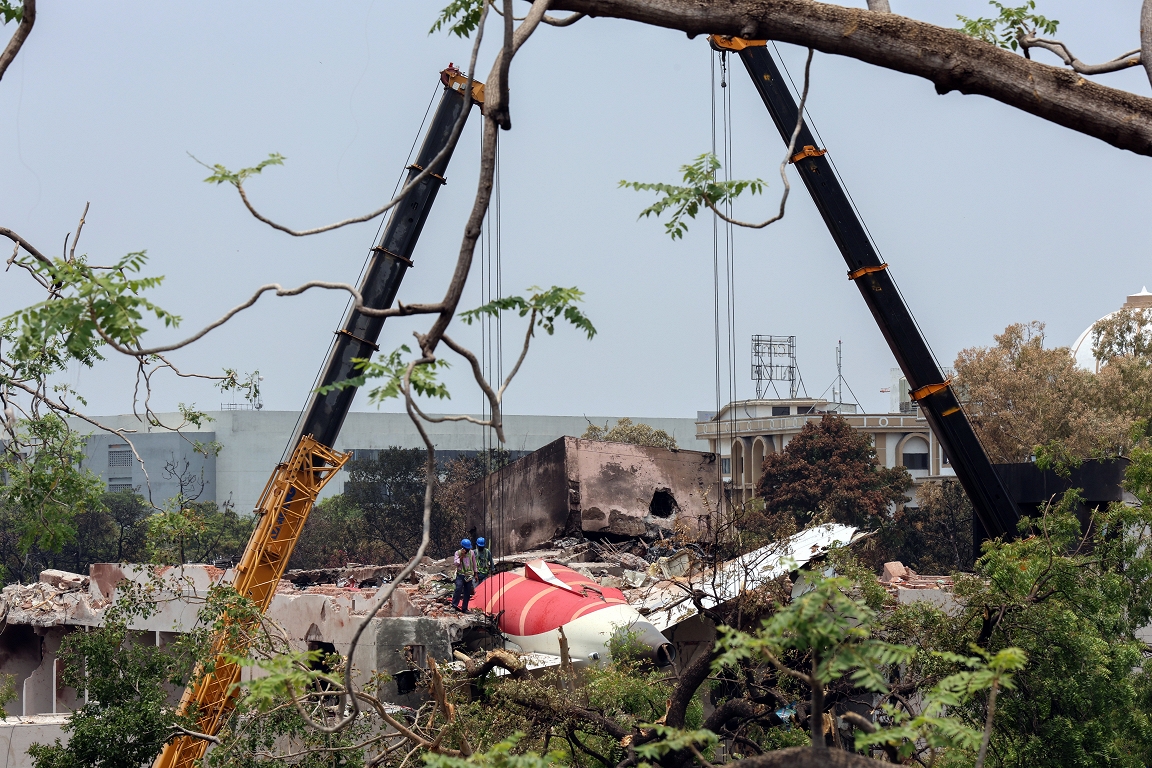« Listening to a child is not a favor, it is a duty » – Liberation

How, at 20, think a more desirable future with lightness and joy? How to trust the future without giving up? For its second edition, the Festival Place a Tomorrow moved to Paris, at the Palais de la Porte Dorée, on Saturday June 14.
How, at 20, think a more desirable future with lightness and joy? How to trust the future without giving up? For its second edition, the Festival Place a Tomorrow moved to Paris, at the Palais de la Porte Dorée, on Saturday June 14.
Twenty years ago already. On October 27, 2005, Zyed Benna, 17 and Bouna Traoré, 15, were electrocuted in an EDF transformer. They were trying to escape a police check. Twenty years already for these two minors who enjoyed a few minutes earlier from their football training in Clichy-sous-Bois in Seine-Saint-Denis. Since then, what does the police report have with teens? Has a bond of trust rebuilt? Has their death resulted in structural changes in French security services?
In 2005, Sara Després was 9 years old. At birth, she was entrusted with her twin sister to social assistance to childhood (ASE), formerly Departmental Directorate for Health and Social Affairs. Until their majority they are placed in a loving foster family in the Cher. Since then, Sara Després has become a lawyer. It has access to the right of children pegged to the body.
Just like Claire Hédon, defender of rights. The former journalist and ex-president of the ATD Quart Monde movement has been carrying out this institution created in addition to justice for those who have the most difficulty asserting their rights since 2020. In his latest reportit denounces the increasingly worrying degradation of child protection, which undermines the best interests of the child and their fundamental rights. Rights to have an identity, to live with the family, to education, to leisure, to justice adapted to their age, to war -win protection, etc. So many rights registered in the International Convention on the Rights of the Child (CIDE), adopted by the UN in 1989. What about respecting the rights of the child in France? How are minors accompanied to justice are accompanied?
Can we say that French children are less well protected than adults?
Sara Després: In France, education for fundamental rights is a dead angle for school programs. However, it is knowledge to which any citizen should have access: regardless of their level of study, its geographic or social origin. With my association on the benches, We are about to set up direct access to justice in a high school in Paris. If children do not come to us, will meet them as cultivation does.
Claire Hédon: It is for this reason that we created the young rights ambassadors (Jade). Aged 16 to 25 years old, these young people in civic service are involved in educational establishments, ASE structures, associations, etc. Unfortunately, we only have 82 civic services. They cannot move to all young French people.
Can we say that children are discriminated against by their age?
CH: All current surveys show a general increase in discrimination in France, not only on age. The latest so -called « victimization » survey of the Ministry of the Interior, which « Measures insecurity felt and the facts of delinquency that individuals may have been victims during their lifetime », shows that between 2021 and 2022, there was a 50 % increase in these discrimination. In 2020, 18 % of people aged 18 to 45 say they were victims of discrimination, against 14 % in 2008. According to the fourteenth barometer on the perception of discrimination in employment, which we led with the International Labor Organization (ILO), it is one in three young people, 30 % of them who say they have been victims of discrimination. It is rather one in five people in the general population.
Young people are therefore more discriminated against than the general population …
CH: What we see is that young people are overexposed to damage to rights and discrimination in employment, but also in relations with the police. THE discriminatory identity checks With regard to young people persist. For several years, we have recommended the traceability of these controls, in order to allow these young people to appeal. It has a lot of trouble moving forward. This observation is also found in verbalization. I am alerted by young people who say they are on verbalized and indebted up to 30,000 euros. I refer to the investigation « Fines, evictions, controls » that two Sciences Po researchers have conducted on « unwanted». This is the term that is used by the national police in its repository, that inscribed in its handrail software. The criterion is « unwanted». In the 1930s, this term was used for the Jews of Eastern Europe. In the 1960s for Algerians. It is totally frightening. One of our first battles is that this term was removed from the national police software.
Last April, a Parliamentary Commission of Inquiry pointed out the breaches of public child protection policies. Following this publication, you decided to file a complaint against France with the UN child’s rights committee and requested the opening of an international survey. Sara Després, would you like to condemn France?
SD: The objective of this complaint is to lead to specific recommendations issued against France. I wish to shed light on the fact that structural failures affect the fundamental rights of children and that France should be more ambitious on the means allocated to child protection.
CH: The child’s rights committee regularly decides on respect for the rights of the child by France. I think he is aware of French difficulties. Creating a complaint like that of Maître Després also means recalling that when France signs an international convention like CIDE, it is committed. It is a right that is directly applicable. Using the law and the remedies that exist is useful. The associative world regularly seizes the legal system to assert the rights.
Very young, you have been faced with justice Sara Després. What do you have left?
SD: I remember, at 8 or 10 years old, go to the Paris court while I lived in the center of France. I saw black dresses everywhere and I told my parents’ parents « Why, we don’t have one? « For a child, a courthouse is absolutely not the palace of dreams. He wants to flee. The same goes for police stations and gendarmeries. Before the hearings repeated almost every year, our welcome parents were preparing my twin sister and I like a lawyer does with his customers. But this is not the case for all children and then our parents were not allowed to enter the cabinet of children’s judges. So we were alone. We were only accompanied by our educators who were not on our side.
Isn’t the presence of a lawyer compulsory in ASE procedures?
SD: The Taquet law has registered the faculty for the children’s judge to designate a lawyer to represent and defend the interests of the child. However, the presence of a lawyer is not systematic, since the budget of the Ministry of Justice is limited. Jurisdictional aid represents a significant cost.
Would you have a concrete case?
CH: We were very struck by the case of a 12 -year -old young person accused of harassment, and who was heard at the police station. The policeman asks her if she has a lawyer. The answer is no. The policeman offers him to have a lawyer committed. Without explanation. But the girl, quite predictable, does not know what an office committed! She was heard without an adult, without her parents, without a lawyer, when she was implicated. It is absolutely not normal.
If there is no lawyer, there are still professionals in justice, education, social assistance who work on a daily basis with children.
CH: What marks me the most at the moment, in the stories of school harassment or educational violence that we are very confronted with is the lack of listening: the child wants to speak, but it is not heard. Neither did his parents and the other students are not even questioned.
SD: I watched the general observation project of the children’s rights committee opened in 2024 and which will end in June 2025. There are three essentially obstacles which are drawn around access to justice of minors: being considered incapable, being dependent on adults and the third is to lack knowledge to assert its rights.
However, for several years, children have been encouraged to speak. Once the floor is harvested, what happens?
CH: Listening to a child is also taking his word into account. On this, article 12 of the CIDE says that listening to a child is not a favor, but a duty. However, this right remains one of the most difficult to make effective. In 2017, we had a survey by asking adults to cite the rights of children, the right to be heard was only cited by 2 % of the interviewees.
SD: for many, the child is a infansa non -discerning person who does not speak. As long as we do not completely leave this intellectual paradigm, we will not be able to consider the child’s word as fully audible.
Is France late?
SD: There is only one mention of the child in the French constitutional block, in the 1946 preamble. Only one.
CH: Finland, Belgium, Austria, Ireland have registered this right to be heard in the Constitution. In France, I have the impression that it is more difficult to go in this direction. As a defender of rights, I can be seized free of charge by minors without the agreement of any adults, not even that of parents. We can enter us by all means: the website, our delegates, by telephone, by unmount mail. We also do a continuous work of clarification. The referral form has been enormously improved so that it is more accessible, and obviously for children. In reality, few children seize us directly. We are well known to the general public, particularly an audience that would need us.
In addition, for each of our annual children on children, we organize national consultation with more than 3,000 children. In reports, you see the recommendations of children and ours. I am convinced that our reports would not be the same if we did not consult the first concerned. But as long as we don’t have this conviction, we don’t make things happen.







